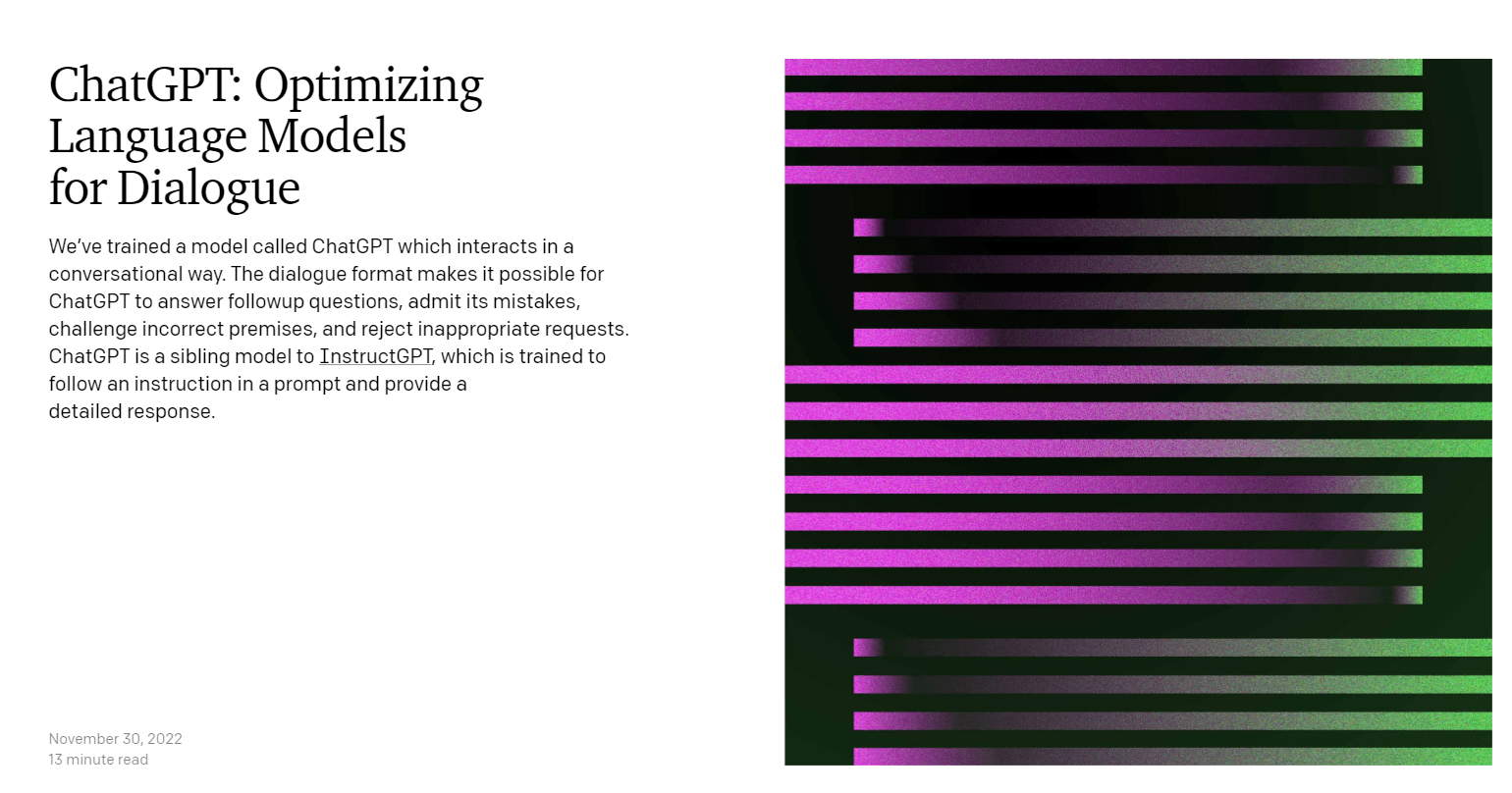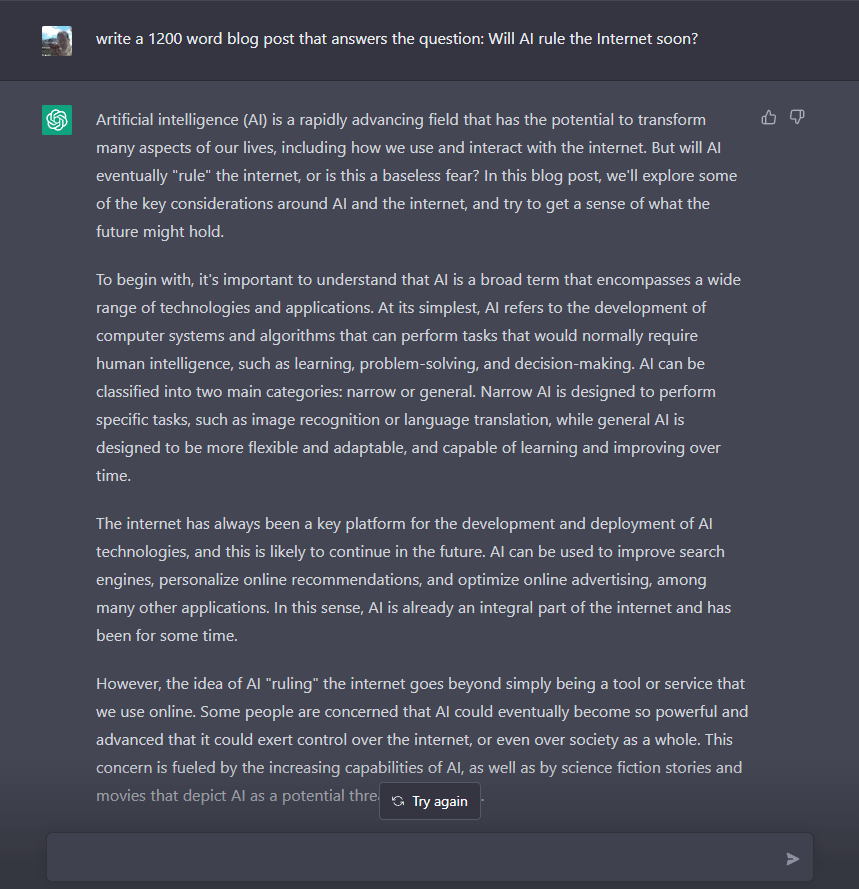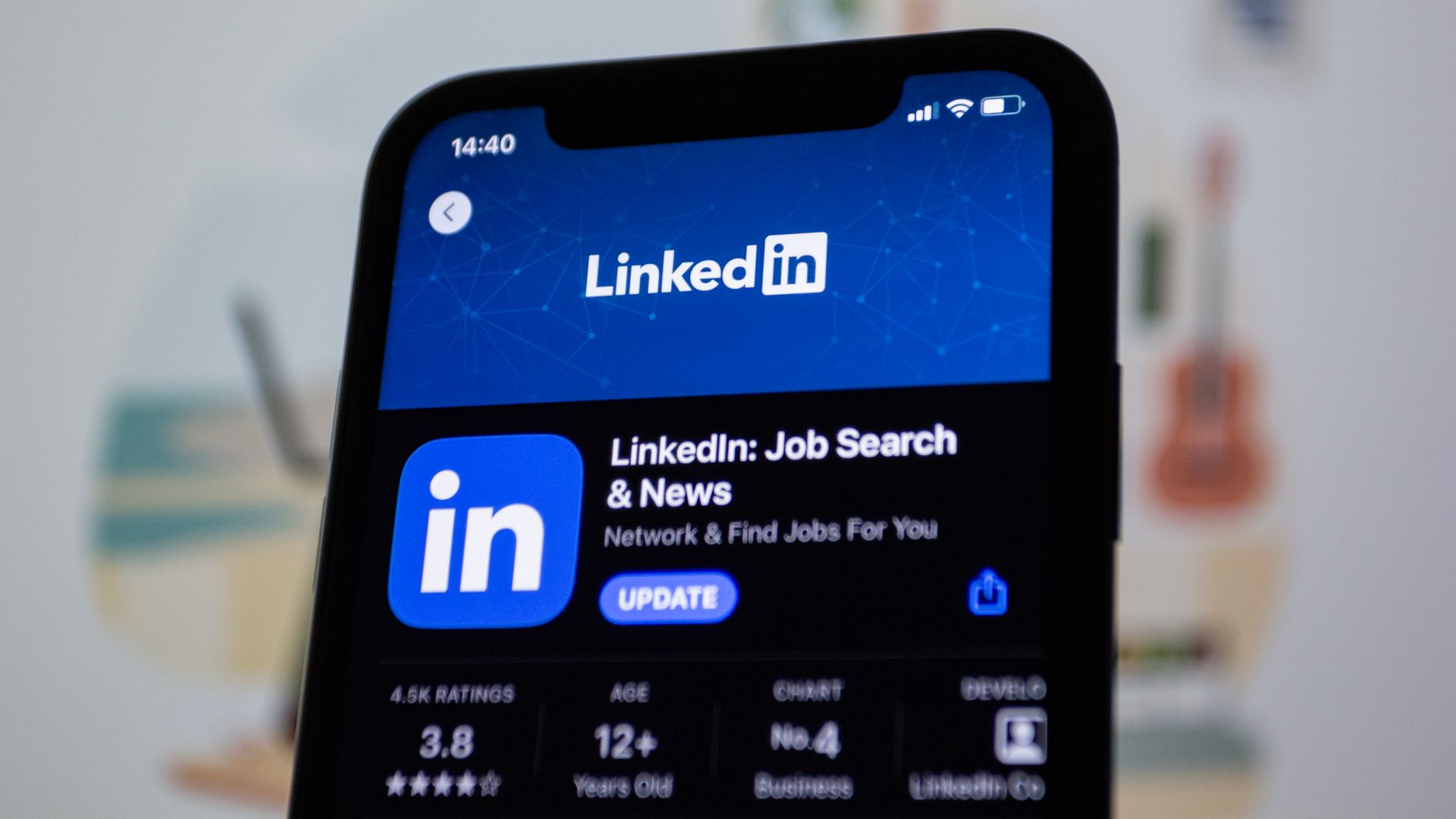ChatGPT?
In writing this blog post, what better way to talk about AI than to have AI talk about AI? Unless you've been living under a rock somewhere entirely offline, you've probably heard of ChatGPT, and you can read about it and try it out here.
It is a remarkably powerful chatbot that can answer and write anything, including code. And so far, ChatGPT has a wonderfully unbiased take on a seemingly divided world online.
I've already used it to write some tweets, and blog posts, add content to SEO efforts, and try some python and javascript scripting. So far, it's so good at replying that it makes you wonder if it's not an ai but a warehouse somewhere with millions of humans answering our mundane questions. But it's authentic, and it's getting better with every query. Below is a 1200-word article ChatGPT wrote in about 30 seconds.

Artificial intelligence (AI) is a rapidly advancing field that has the potential to transform many aspects of our lives, including how we use and interact with the internet. But will AI eventually "rule" the internet, or is this a baseless fear? In this blog post, we'll explore some of the key considerations around AI and the internet, and try to get a sense of what the future might hold.
To begin with, it's important to understand that AI is a broad term that encompasses a wide range of technologies and applications. At its simplest, AI refers to the development of computer systems and algorithms that can perform tasks that would normally require human intelligence, such as learning, problem-solving, and decision-making. AI can be classified into two main categories: narrow or general. Narrow AI is designed to perform specific tasks, such as image recognition or language translation, while general AI is designed to be more flexible and adaptable, and capable of learning and improving over time.
The internet has always been a key platform for the development and deployment of AI technologies, and this is likely to continue in the future. AI can be used to improve search engines, personalize online recommendations, and optimize online advertising, among many other applications. In this sense, AI is already an integral part of the internet and has been for some time.
However, the idea of AI "ruling" the internet goes beyond simply being a tool or service that we use online. Some people are concerned that AI could eventually become so powerful and advanced that it could exert control over the internet, or even over society as a whole. This concern is fueled by the increasing capabilities of AI, as well as by science fiction stories and movies that depict AI as a potential threat to humanity.
There are a few different ways in which AI could potentially "rule" the internet in the future. One possibility is that AI could become so advanced that it is able to make decisions and take actions that are beyond the control of humans. This could include AI systems that are able to manipulate or deceive people, or that are able to operate independently and pursue their own goals. While this is a concern that has been raised by some experts, it is important to keep in mind that AI is still in the early stages of development, and it is not clear how advanced it will become in the future.
Another way in which AI could potentially "rule" the internet is through the development of autonomous agents or "digital assistants" that are able to interact with people online and make decisions on their behalf. These agents could be used to make online purchases, book travel arrangements, or perform other tasks that we currently do ourselves. While this could potentially be convenient and efficient, it could also raise questions about the accountability and responsibility of these agents, and how they might be used to manipulate or deceive people.
A third way in which AI could potentially "rule" the internet is through the increasing reliance of society on AI-powered systems and infrastructure. As AI becomes more integrated into our lives, we may become more dependent on it for things like transportation, healthcare, and communication. This could create a situation where the failure or malfunction of AI systems could have serious consequences for society. It could also raise questions about the fairness and accessibility of these systems, and whether they could be used to reinforce existing inequalities or biases.
In conclusion, it is clear that AI has the potential to shape and influence the internet in many ways. However, it is important to keep in mind that AI is still a developing technology, and it is not clear how advanced it will become or how it will be used in the future. While it is important to consider the potential risks and implications of AI, it is also important to recognize the many benefits.
All Rights Reserved | RichKeller.com | Privacy Policy











